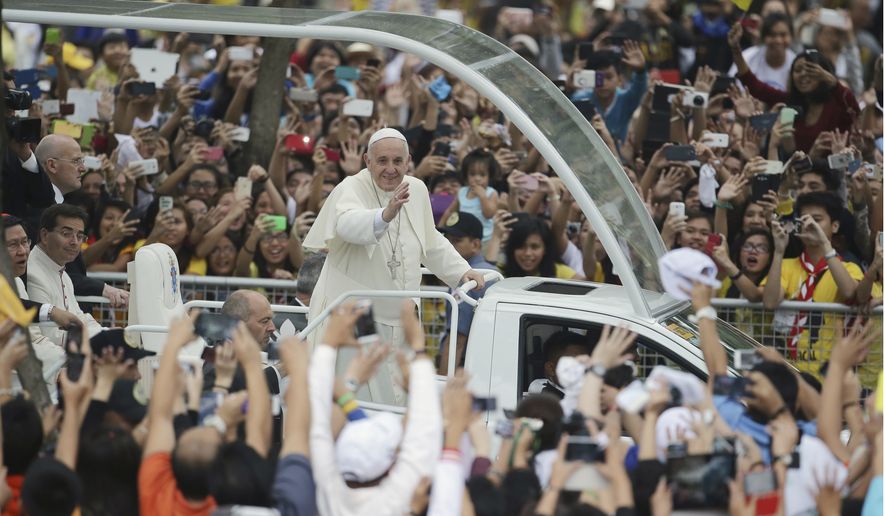OPINION:
As our society becomes ever more contemptuous of religious belief, young Catholics are under pressure not to let their faith go beyond the parish parking lot. At the same time, however, some of our political leaders constantly refer to themselves as Catholic even while they promote policies that are at odds with Church teaching, natural law and the common good — the most shocking example of which is their militant support for abortion.
Young Catholics are quite understandably searching for alternatives. Some, for example, may let the consuming culture be their guide. Others may be tempted to head for the hills to avoid conflict. And still others run the risk of being drawn to utopians with little connection to Church history or reality.
What young believers need instead are the intellectual tools to reject secularism and sectarianism, starting with guidance on the Catholic approach to civic engagement. And the first step is to understand the relationship that Christians have with civil society itself.
At the Lecture on Catholic Political Thought sponsored by the Institute for Human Ecology (IHE) at The Catholic University, The Project on Constitutional Originalism and the Catholic Intellectual Tradition and the Thomistic Institute, professor Russell Hittinger, an IHE senior research fellow, boldly outlined this relationship. His lecture, “How to Inherit a Kingdom: Reflections on the Situation of Catholic Political Thought,” drew on the wisdom of many great Catholic thinkers including St. Augustine, on whom Mr. Hittinger is a renowned authority.
“I’m a separationist,” Mr. Hittinger said. “It’s not a slogan — it’s a principle learned from St. Thomas and St. Augustine, who learned it by studying the New Testament.”
The proper term for the relationship between the kingdom here below, and the temporal state, is separate or separated. That means, for starters, set apart, as something holy in its end and means, which are those of grace.” And this setting apart, he explained, was done by Jesus when He declared that “My Kingdom is not of this world.”
In other words, the Church should not seek to exercise functions proper to secular government nor draw too close to the secular consensus. Christians should engage with civil society as Christians, bringing their deepest beliefs into the public square. In fact, the nation needs Catholics to be “Catholic” more than ever. But our civic engagement should not attempt to subjugate civil society to the authority of the Church. “Christendom” hasn’t existed since the 17th century, said Mr. Hittinger in response to a questioner. St. Augustine, he reminded us, several times, fiercely opposed the “pagan integralism” of the Roman Empire, which Jesus himself repudiated by stressing that his Kingdom was not on Earth.
“We can say that political life, as such, is a good thing, not inherently sinful or death-dealing,” said Mr. Hittinger. But its ambitions should not be confused with the Kingdom. The Church should not be united with the State and — as Benedict XVI has written — its embrace of a “social Gospel” runs the risk of conflating political projects with the true Kingdom of God.
Mr. Hittinger’s lecture was dazzling in its scope; I can’t summarize it in a few sentences, but I was struck by his insight that while Catholics should certainly engage with civil society and work for the common good, they should distinguish between their political endeavors and their theological mission to evangelize.
The lecture is now available, and thoughtful Catholics should reflect carefully on Mr. Hittinger’s remarkable contribution to our necessary conversation on civic engagement. He has joined other reputed scholars at the university’s IHE as part of a new Program on Catholic Political Thought.
With pontifical faculties of theology and philosophy and a department of politics, the program offers a place where graduate students can acquire the tradition, scholars can extend and apply it, and the general public can look for it. He is also part of a new initiative at the Institute — IHE Voices, a select group of scholars and fellows (of which I am a part) sharing their knowledge with the public. These are the sorts of tools we all need in order to navigate safely through the political minefield and to reinvigorate the Church and our society.
• Andrea Picciotti-Bayer runs the Conscience Project and is a fellow at the Institute for Human Ecology at The Catholic University of America — the only national university of the Catholic Church in America.




Please read our comment policy before commenting.